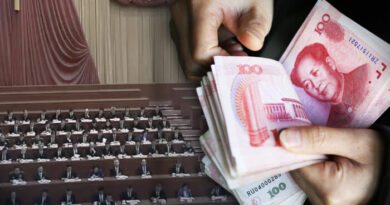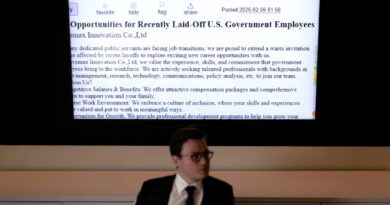Once the Largest Pro-Democracy Group in Hong Kong, Democratic Party to Dissolve
After the implementation of the National Security Law, many civic groups in Hong Kong were forced to disband.
Hong Kong’s largest pro-democracy organization, the Democratic Party, announced its decision to dissolve on Feb. 20.
It follows reports from several Hong Kong media outlets claiming that “messengers” with Beijing’s backing advised the party to disband. Lo Kin-hei, chairperson of the Democratic Party, said the decision to dissolve was made taking into account the current political situation.
The central committee of the Democratic Party held a meeting on Feb. 20 to discuss its future direction. After the meeting, the Democratic Party announced the establishment of a three-person group to follow up on dissolution and liquidation proceedings. The members include Chairperson Lo Kin-hei, Vice Chairperson Mok Kin-shing, and Secretary-General Leung Wing-kuen.
Lo said that the dissolution needs to be decided at a meeting with all party members in attendance and requires a 75 percent approval from attendees.
A number of Hong Kong media outlets have reported that the Democratic Party has recently received “suggestions” to disband, including from individuals with official connections to Beijing who said that the Chinese Communist Party (CCP) would not allow the Democratic Party to participate in the next Legislative Council election, that the party had no value, and that it should dissolve itself.
When asked whether the decision was due to pressure, Lo did not respond directly but repeatedly said that he “won’t say too much.” He said the dissolution was a decision made taking into account the political situation and not because of financial pressure. He apologized for failing to consult all party members beforehand.
The Democratic Party held a general election in December 2024, and Lo was reelected as its chairperson. At that time, he said that the Democratic Party would continue to speak out for the people of Hong Kong. On Feb. 19, one day before the decision to disband, the Democratic Party held a press conference to make recommendations on this year’s budget.
At the press conference announcing the disbandment, Lo said, “We very much hope to continue to serve the people of Hong Kong and continue to work with everyone in Hong Kong. But, of course, there are some decisions we need to make, and I can’t say too much here.”
As for the time of dissolution, Lo said that the party will seek advice from lawyers and people with relevant experience. He said it is impossible to predict how long it will take at this moment, and if there are any remaining assets after the finances are settled, they will be transferred to a like-minded group or charity.
When asked about the future path for democracy in Hong Kong, Lo said that fighting for democracy has always been difficult, “but I have confidence in the people of Hong Kong.”
The Democratic Party was established in 1994, and its predecessor, the United Democrats of Hong Kong, was established in 1990. It was the largest pro-democracy party in Hong Kong after the 1995 Legislative Council election.
The Democratic Party is regarded as moderate and willing to communicate with the Hong Kong government and Beijing. In 2010, then Chairperson Albert Ho went to the Liaison Office of the CCP in Hong Kong to discuss ideas for political reform.
After the implementation of the NSL, many civic groups in Hong Kong were forced to disband. The Civic Party, another pro-democracy party, officially dissolved in 2024.
In 2021, a year after the passage of the NSL, a wave of “dissolutions” occurred in Hong Kong, including the Hong Kong Professional Teachers’ Union, the largest teachers’ organization; the Civil Human Rights Front, which had organized many demonstrations and rallies; and the Hong Kong Confederation of Trade Unions, an organization that supported pro-democracy groups.
Lee pointed said that after the Democratic Party, the largest pro-democracy party, is disbanded, party politics in Hong Kong will no longer exist. This also means the role of pro-communist parties such as the Democratic Alliance for the Betterment and Progress of Hong Kong, and the Hong Kong Federation of Trade Unions will become irrelevant in the eyes of Beijing, because Hong Kong is now under direct CCP rule.





